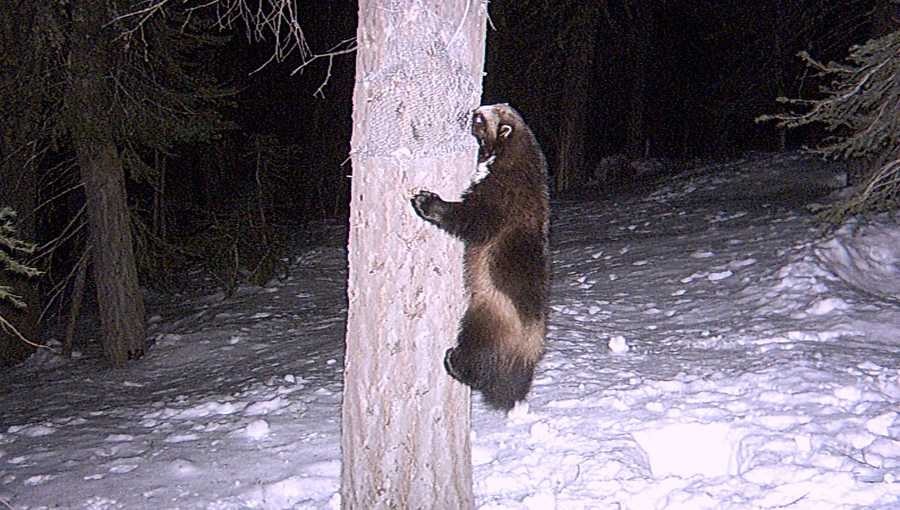
A lone wolverine traversing across Northern California is sending ripples of excitement across the Golden State. It is only the second sighting of the mammal in the state in almost a century. The wolverine has been captured on camera multiple times in different areas of the eastern Sierra Nevada mountain range since May 2023.
On June 1, 2023, the California Department of Fish and Wildlife (CDFW) confirmed that the various photos portray the same individual.
"Wolverines can travel great distances, making it likely that the recent sightings are all of the same animal," said CDFW Senior Environmental Scientist Daniel Gammons. "Because only two wolverines have been confirmed in California during the last 100 years, these latest detections are exciting."
The agency is working with the National Park Service to obtain the wolverine's hair, scat, or saliva from feeding sites. They hope the genetic samples will give them more insights into the animal.
The previous wolverine to visit California was an individual nicknamed Buddy. He was spotted several times in the Tahoe National Forest from 2008 to 2018 before disappearing. Prior to that, California's last confirmed wolverine sighting was in 1922.

Wolverines are the largest members of the weasel family, which also includes badgers and otters. The bear-like live for about 13 years in the wild. The animals prefer colder weather and can be found primarily at high altitudes with alpine vegetation. They prey on small to medium-sized animals like squirrels and rabbits. In winter, when food is scarce, wolverines use their powerful noses to seek out carcasses left by larger predators.
The mammals were once common across California. However, the loss of habitat caused by human settlement decimated the species. By 1922, they had all disappeared from the state. There are currently just 300 wolverines left in the US. The mammals' worldwide population has also dwindled to about 20,000 specimens. They can be found in northern Canada, Siberia, Scandinavia, and Russia.
Resources: CNN.com, KTLA.com, wildlife.ca.gov
